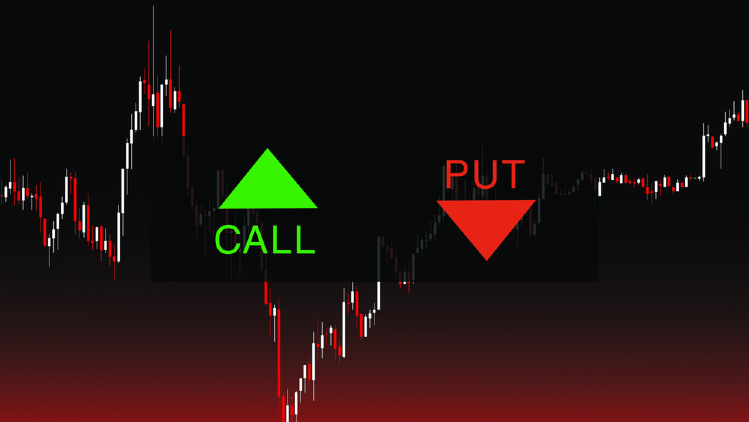The world of finance is vast and ever-evolving, with options trading emerging as an increasingly popular investment strategy. As a beginner venturing into this exciting realm, it’s crucial to arm yourself with knowledge, understanding, and a clear strategy. In this comprehensive guide, we delve into the intricacies of options trading, providing a roadmap for your learning journey and empowering you with the tools for success.

Image: www.pinterest.com
Before diving into the details, let’s address the fundamentals. Options are financial contracts that provide the holder with the right, but not the obligation, to buy or sell an underlying asset at a predetermined price within a specified period. This flexibility offers investors both opportunities and risks, making options a versatile tool for risk management and potential profit generation.
Options 101: What You Need to Know
Types of Options:
**Call Options:** Give the holder the right to buy an underlying asset at the strike price on or before a specific date, expecting the asset’s price to rise.
**Put Options:** Provide the right to sell an underlying asset at the strike price on or before a specific date, anticipating a decline in the asset’s value.
Key Terms:
Strike Price: The predetermined price at which the holder can exercise the option to buy or sell the underlying asset.
Expiration Date: The date beyond which the option loses its validity.
Premium: The amount paid by the buyer to the seller for the right to exercise the option.

Image: www.irafinancialgroup.com
The Mechanics of Options Trading
Understanding the mechanics of options trading is paramount. When you buy an option, you acquire the right to exercise it at a later date. You can choose to exercise your right if the option is “in the money,” meaning it’s profitable to do so. However, you’re not obligated to exercise, and if the option doesn’t become profitable, it will expire worthless.
Conversely, when you sell an option, you have the obligation to fulfill the contract if the buyer exercises their right. This means selling or buying the underlying asset at the strike price on the expiration date if the option is “in the money.”
Risks and Rewards of Options Trading
Options trading carries both potential rewards and risks. The primary benefit is the opportunity to magnify your profits relative to stock trading, as options have the potential to generate substantial returns if the underlying asset moves in your favor. However, it’s important to remember that options can also expire worthless, resulting in a complete loss of your investment.
The risks associated with options trading can be significant. Factors such as volatility, time decay, and the potential for losing the entire premium paid can all affect your investment outcomes. Therefore, it’s crucial to thoroughly understand the risks involved before entering the options market.
Tips for Successful Options Trading
To increase your chances of success in options trading, consider the following expert tips:
- Educate yourself thoroughly: Study options theory, strategies, and risk management techniques.
- Start with paper trading: Practice trading with virtual funds to gain experience without risking real capital.
- Choose appropriate options: Select options that align with your trading goals and risk tolerance.
- Manage your risk: Diversify your portfolio, use stop-loss orders, and consider hedging strategies.
- Stay updated with market trends: Monitor market movements, news events, and company earnings to make informed decisions.
FAQs on Options Trading
Q: Is options trading suitable for beginners?
A: Options trading involves complex concepts and significant risks, making it less suitable for complete beginners. It’s advisable to gain a solid understanding of financial markets before venturing into options.
Q: What is the minimum capital required for options trading?
A: The minimum capital required varies depending on the options you trade and your trading strategy. However, it’s recommended to have a sufficient amount of capital to cover potential losses and margin requirements.
Q: How do I get started with options trading?
A: To begin options trading, you’ll need to open an account with a brokerage firm that offers options trading services. Once your account is set up, you can start researching and placing trades.
I Want To Learn Option Trading
https://youtube.com/watch?v=MUnRiE9x4GU
Conclusion
Embarking on your options trading journey requires a combination of knowledge, strategy, and risk management. By studying the concepts outlined in this guide, practicing with paper trading, and seeking expert advice, you can equip yourself for success in this dynamic and rewarding financial arena. Remember, the path to mastery lies in continuous learning and prudent decision-making. As you delve deeper into the intricacies of options trading, you’ll uncover its transformative potential and the opportunity to expand your financial horizons.
If you’ve always been intrigued by the world of options trading, now is the perfect time to take the first step. Educate yourself, experiment with paper trading, and immerse yourself in the intricacies of this exciting market. With dedication and a well-defined strategy, you can unlock the potential of options trading and harness its power for financial success.






